How to Sell Used Items on Amazon
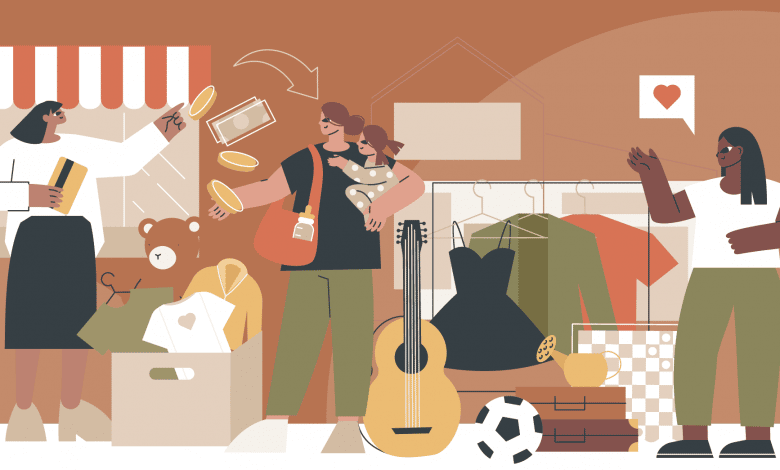
This article contains affiliate links that will allow us to earn commissions without any extra cost to you. Read our full disclosure here.
A lot of Amazon sellers sell new items through private labeling or arbitrage, but you can sell used items on Amazon too. In this article, we’ll go over the process of selling used items on Amazon.com and where to find items to sell.
Related Reading: Amazon Arbitrage: Earn Money by Reselling Items on Sale
Does Amazon Allow Used Goods to Be Sold on the Platform?
Yes. Whether you’re selling pre-owned items you found in a garage sale or from your own house after a declutter, Amazon allows sellers to sell used products as long as they comply with their requirements. You can sell personal or secondhand items.
You don't even need to be a “serious” Amazon seller. You can choose to sell just a single product or a couple of products on Amazon. But you can also turn this into a main source of income. In fact, some people make a living just by selling used books on Amazon.
However, not all kinds of products may be sold on Amazon as used. Products in some categories are allowed to be sold only as new. The table below shows the categories and the allowable conditions. Basically, any item can be sold as used except for Baby products (excluding apparel), Beauty, Grocery and gourmet foods, Health and personal care, Independent design, Watches, and Toys/Games.
| Allowed to be sold as used | Not allowed to be sold as used | |
|---|---|---|
| Category | Condition | |
| Amazon Kindle | Used | Baby products (excluding apparel) |
| Automotive & Powersports | Certified refurbished, Used | Beauty |
| Books | Used | Grocery and gourmet foods |
| Camera & Photo | Certified refurbished, Used | Health and personal care |
| Cell Phones & Accessories | Used, Certified refurbished | Independent design |
| Consumer Electronics | Certified refurbished, Used | Watches |
| Home & Garden | Certified refurbished, Used | Toys and Games |
| Industrial & Scientific | Certified refurbished, Used | |
| Kindle Accessories and Amazon Fire TV Accessories | Certified refurbished, Used | |
| Major Appliances | Used, Certified refurbished | |
| Music | Used | |
| Musical Instruments | Used, Certified refurbished | |
| Office Products | Certified refurbished, Used | |
| Outdoors | Certified refurbished, Used | |
| Personal computers | Certified refurbished, Used | |
| Pet supplies | Certified refurbished, Used | |
| Software | Used | |
| Sports | Certified refurbished, Used | |
| Tools & Home Improvement | Certified refurbished, Used | |
| Video, DVD & Blu-ray | Used | |
| Video Games | Used | |
| Collectible Coins | Should be like new | |
| Entertainment Collectibles | Should be like new | |
| Sports Collectibles | Should be like new | |
There are four kinds of used conditions allowed on Amazon:
| Used – Like New or Open Box | The item is in perfect working condition with intact original packaging and in good condition with minor damage possible, with or without original protective wrapping. Instructions must be included. |
| Used – Very Good | The item has been well-cared-for, has undergone limited use, and is still in good working condition. It may show limited signs of wear, i.e., small scratches or cosmetic errors. The original packaging may be damaged, or the item could be repackaged. Any missing accessories must be clearly defined for each item. |
| Used – Good | The item is in good condition and is fully-functional but shows signs of wear from consistent use. It may arrive repackaged or with damaged packaging. It may have markings and minor cosmetic damage. It may be missing parts, accessories, or instructions. |
| Used – Acceptable | The item is still functional but is fairly worn, and has been repackaged or is in damaged original packaging. Bears signs of wear such as scratches, dents, worn corners, or identifying markings. Parts, accessories, and instructions may be missing. |
However, take note that collectibles follow a different set of conditions. Collectibles are those that provide more value than the actual product itself. For example, the item can be autographed.
Another thing to take note of is that there are restricted products on Amazon. And if you choose to sell through FBA, there are also FBA prohibited products.
Where to Find Used Products to Sell on Amazon
If you want to make selling used products a serious income stream, there will be a lot of research and legwork involved. Here are just a few places to help you get started.
Around your house. Want to declutter? List your pre-loved items on Amazon and get some of that money back.
Garage sales and thrift stores. If you have a keen eye for valuable items, go to garage sales and thrift stores. Products with barcodes are much easier to deal with because you can easily determine how much you can potentially earn if you have the right scanning app.
Liquidation pallets. Liquidation pallets are great resources for new or like new products. You can buy or bid online.
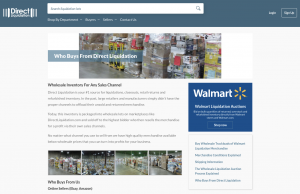
Social media. People who are just decluttering or are moving to another place tend to sell their used items cheaper, so watch out for these kinds of posts. Facebook Marketplace is a good place to check out.

How to List Used Products on Amazon
Listing used products on Amazon follows similar steps as listing new products, except that the condition is set as “Used.”
Step 1: Sign up as an Amazon seller
To list a used item on Amazon, you need to sign up as a seller. You can choose between a Professional and Individual account. The Professional account charges you a flat fee of $39.99 per month, while the Individual account charges you $0.99 as per-item fee when you sell something. So here’s the rule of thumb: When you’re selling more than 40 units per month, go for the Professional account. Otherwise, the Individual account will suffice.
Step 2: Decide how to fulfill orders
You can choose either Fulfillment by Amazon (FBA) or Fulfillment by Merchant (FBM). If you’re just selling a few items and don’t have any plans of making selling on Amazon a serious income stream, you can go for the latter.
| Amazon FBA | Fulfilled By Merchant | |
|---|---|---|
| Prime eligibility | Yes | No |
| Customer service | Amazon Customer Service | Seller handles customer service |
| Shipping costs to customer | Amazon arranges and bills the seller | Seller deals with shipping and handling |
| Inbound shipping costs to FBA | Yes | None |
| Performance metrics | None | None |
| Storage & Fees | Amazon takes care of storage and fulfillment. Sellers can pay FBA fees and track their inventory all in one place | Seller has to set up their own warehouse or work with a 3PL |
| Returns | Amazon handles returns | Seller deals with returns, refund requests, other customer complaints |
Step 3: Add your products to existing listings
When you’re selling used items, chances are there’s already an existing listing for that product. Since Amazon does not allow multiple product pages for the same item, all you need to do is piggyback on those listings.
Go to sellercentral.amazon.com and select Inventory → Add a Product. You will then be taken to this page:
Search for the product or enter the ASIN, EAN, ISBN (for books), or UPC. If you want to know the ASIN of the product, go to Amazon.com and search for the listing. You will find the ASIN in the following places:
After you have the right listing, select Used and click “Apply to Sell” and fill out the details.
Step 4: Create a shipping plan
If you go for FBA, you need to create a shipping plan to send in your inventory to Amazon. Refer to our comprehensive guide on how to do this.
Amazon vs. eBay: Which Is Better for Selling Used Items?
Amazon and eBay are two of the biggest e-commerce companies right now. But which one is better when it comes to selling used goods?
There are lots of factors to consider, but in general, if you’re just decluttering, it’s better to go for eBay. Used items are not eligible to get the Buy Box on Amazon, so customers have to do more work to get to your item. eBay, on the other hand, allows buyers to view used products immediately in the search results.
For example, we searched for “iPad” on eBay, and the first four products were either used or refurbished. Out of the 60 listings on page 1, only 11 were brand new.
If, however, you want to make this a more steady source of income, it’s better to go for Amazon to take advantage of FBA.
Best Practices for Selling Used Products on Amazon
Choose your product’s condition wisely. A good practice is to indicate a condition that is one step below the actual condition so you don’t disappoint customers. For example, if your product is Used – Like New, you can list it as Used – Very Good. This might affect the customer’s buying decision, but it’s better to have them pleasantly surprised than disappointed.
Fill in the Condition Note. Set the customer’s expectations properly by filling in the optional “Condition Note.” Indicate the marks, damages, etc.
Provide stellar customer service. Amazon tries to be the most customer-centric company in the world, and it expects its sellers to live up to its standards, whether you own a private-label business or just reselling used items. So respond to queries as quickly as you can and address issues accordingly.
Keep your prices competitive. Sellers can have a very wide profit margin when selling used goods. This is especially true when you find gems in garage sales and thrift stores, so try to keep your prices competitive.
FBA Grade and Resell
The FBA Grade and Resell is a program for sellers who already sell new merchandise. It is a program that allows FBA sellers to relist returned or unsold inventory as used, making it an alternative to having the inventory removed or returned to the seller.
This is how it works: Amazon grades returned or unsold inventory, and the seller can set his prices based on the determined condition. For example, Amazon can grade your product “Used – Very Good” so you will have to adjust the price accordingly. There’s also a flat per-unit processing fee based on the weight and size of the product, which ranges from $1.50 to $4.10.
As of writing, the FBA Grade and Resell is invite-only, but Amazon might open it to all sellers in the future.
Final Thoughts
There are a lot of advantages in building and growing your brand on Amazon, but selling used goods can be very lucrative too. It requires constant effort in finding products to sell, but if you put in the work, it can be worth the trouble.
Have you tried selling used items on Amazon? What were your biggest challenges? Share it with us in the comments section below.
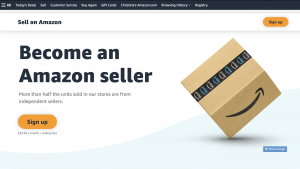
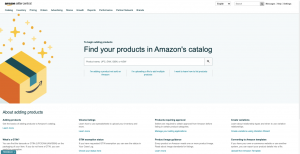
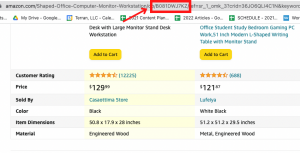
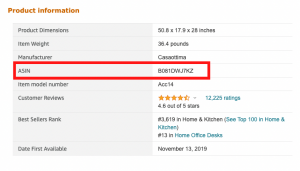
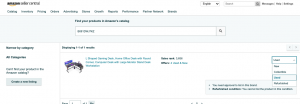




well this is too easy to be true!!! to sell used items in electronics category( smartphones, tablets, TV…) you have to apply for the “amazon renewed” acceptance is very difficult, you have to be already a big seller and prove it with bills and inventory, it is very difficult to be accepted in the programe